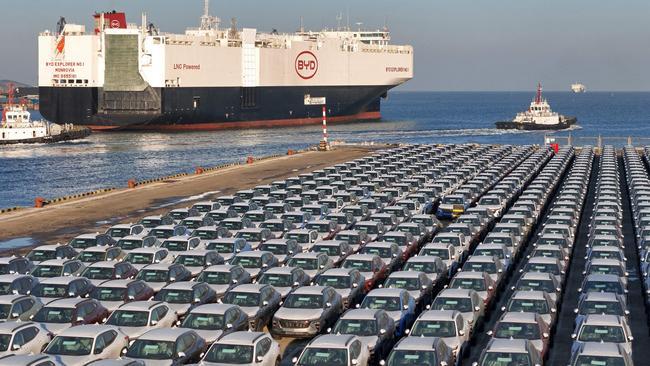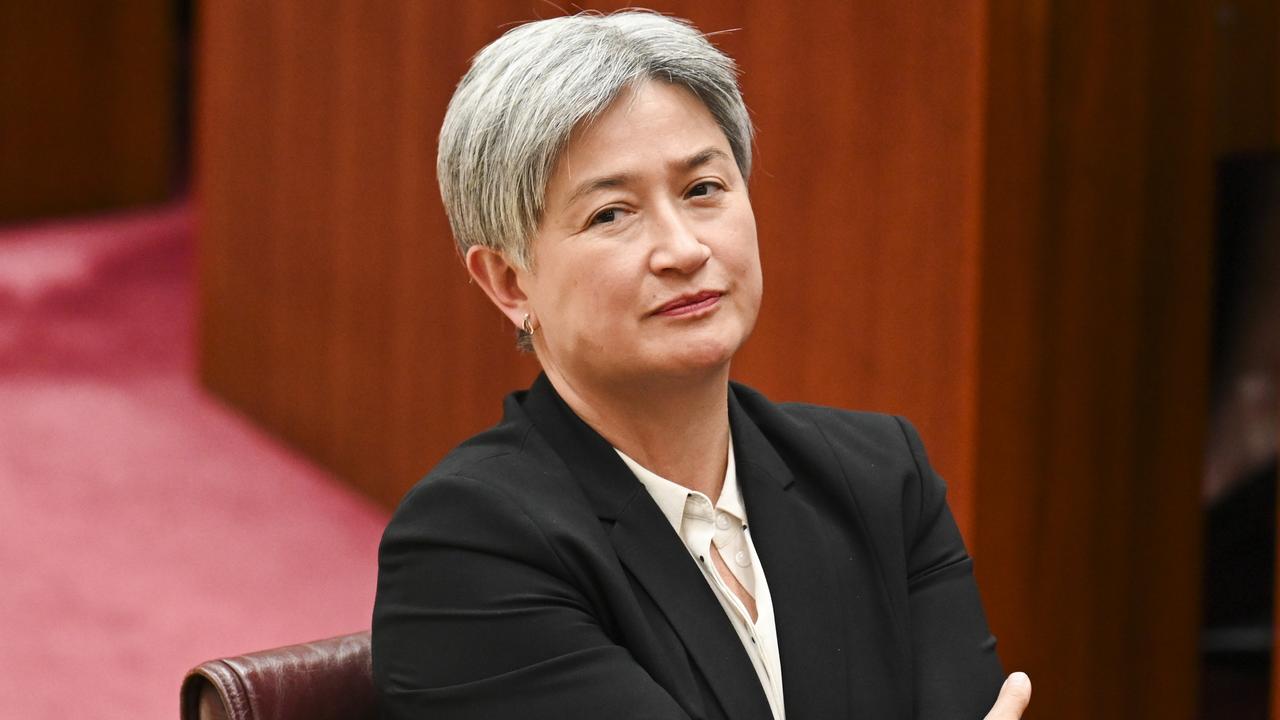Chinese electric vehicles are a rolling security threat

Senate estimates earlier this month heard the remarkable revelation that Home Affairs Minister Tony Burke has had to take “precautions” based on warnings from his own department to protect himself and the nation’s sensitive information from Burke’s own Chinese-made electric car.
The risks with such cars, according to Home Affairs officials, might include having data collected from the owner’s phone if it were connected to the car, voice calls eavesdropped on, image collection from the car’s external cameras and geolocation tracking — meaning that if Burke drove to a sensitive government location the car’s manufacturer would be able to see.
The United States has announced plans to ban Chinese technology in American cars over surveillance and sabotage concerns. Australia should do the same. Moreover, with Prime Minister Anthony Albanese meeting China’s President Xi Jinping in Brazil on the sidelines of the G20 meeting overnight, he had the chance to raise this issue directly, consistent with the kind of frank diplomatic engagement for which Australia should be using these face-to-face opportunities.
Indeed, Australia needs a comprehensive strategy to address the rolling security threat of high-risk foreign vendors to critical infrastructure. Our current approach — not addressing risks until Chinese firms dominate their markets, as BYD is doing now in electric cars — is woefully inadequate. We are trapped in a game of Whac-a-Mole.
Australia has previously addressed risks from China’s Huawei, TikTok and camera-maker Hikvision. New technologies will keep coming, bringing risks of malicious use by Beijing.
Australia must see the US ban on Chinese tech in cars not as an escalation in the US–China trade war but as a wakeup call: technological advance is core to strategic competition and presents real security threats that need to be confronted.
China’s technological dominance across hardware and software allows smart cars, for instance, to serve as tools for surveillance, propaganda and sabotage. But this isn’t just about cars. Internet-connected medical devices, for example, can be used for surveillance of patients.
Most countries could not interfere with and hack into foreign technology without covert activity. But Chinese companies control globally prevalent technology that Beijing — and its intelligence agencies — could exploit directly.
Just this year, seven Chinese departments, including the Ministry of Industry and Information Technology, called for innovation and industrial development in such areas as 6G communications, satellite internet and direct satellite-to-mobile connectivity. This is to be done by advancing current technology that is already raising foreign concerns: 5G, internet of things, satellite communications and internet-connected vehicles.
This aggressive push for leadership highlights the risk of continuing to rely on technology from a country that seeks to do us harm — a country that is using a military-civil fusion strategy to ensure all of its society works for the regime’s military ambitions.
Australia needs a strategic framework that moves beyond a Whac-a-Mole approach that will fail in a plague of moles. Ideally this would involve a coalition of like-minded democratic partners taking collective action. But in the meantime, Australia must develop its own framework.
We need a policy that lists critical infrastructure and sectors from which suppliers of concern — from both China and Russia — are prohibited. Excluding those suppliers would be based on the scale of the potential threat and our inability to mitigate that threat.
This would provide certainty and avoid having to manage fallout from imposing bans after the suppliers were already in the market. Government agencies could still assess specific cases for mitigation. But the presumption that high-risk vendors are banned would end the current approach of waiting for them to achieve a potentially harmful position before we act, as with TikTok.
Australia’s ban on Chinese suppliers in the 5G network in 2018 proved the value of this approach. Australia considered carefully whether the risk of Chinese suppliers in its 5G network could be mitigated. A vendor’s control of the 5G network gives it the capability to turn the network off. Even if China had no immediate plan to take such a dramatic step, its objectives could quickly change in any future conflict or crisis. Australia therefore made the assessment that a full ban was the only option.
While awaiting a national strategy, the same principle should determine the individual case of cars. Just as there was a distinction between 4G and 5G networks, there should be a distinction between traditional, unconnected cars and the new, connected ones. If Chinese technology is too dangerous for our critical infrastructure but not for cars that connect with that critical infrastructure, the government should explain why.
TikTok was deemed a national security threat, but Australia did not ban it outright, opting instead to ban it from government devices. If an outright 5G-style ban on cars is assessed as unnecessary, surely consistency means prohibiting government employees and politicians from buying or travelling in those with Chinese technology. After all, these cars would connect to the devices, such as phones, that the government has said must not be linked to untrusted technology. It was a surprise, therefore, when Climate Change and Energy Minister Chris Bowen in September ruled out a ban because he wanted ‘Australians to have more choice’. Choice cannot be the principle upon which security decisions are made. Nor can price.
Australia needs a comprehensive strategy. And Australians should be told why Chinese tech can’t be in the 5G network, nor in government devices, but can be in the cars that connect to both.
Justin Bassi is executive director and Tilla Hoja a China analyst at ASPI.


